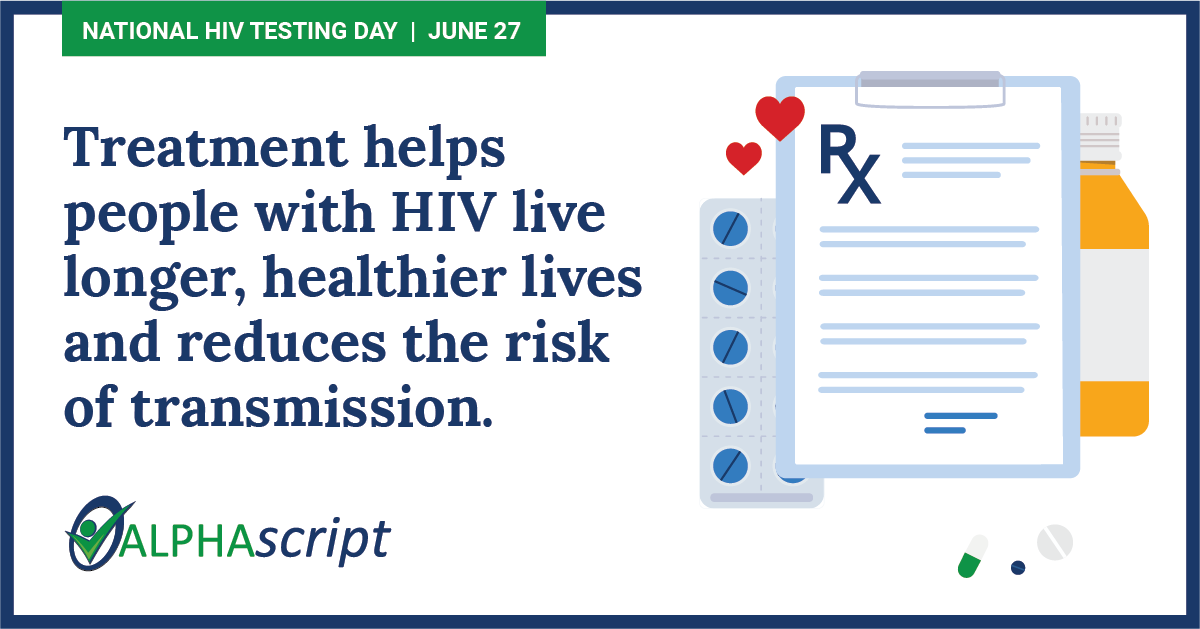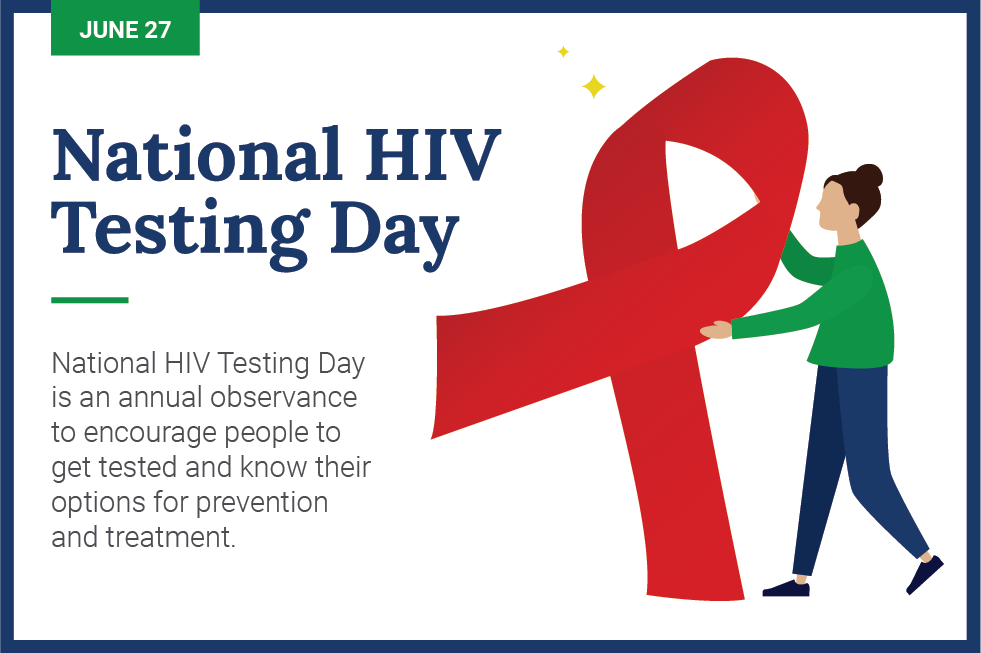National HIV Testing Day is June 27. It is a day to raise awareness about the importance of HIV testing so that people can know their status and their prevention and treatment options.
HIV stands for human immunodeficiency virus. It is a virus that impacts one’s ability to fight off infection and certain cancers. Without treatment, over time HIV can destroy the immune system and advance to AIDS. AIDS (acquired immune deficiency virus) is the late stage of HIV infection that happens when the body’s immune system is badly damaged by the virus.
Ending HIV starts with knowing your risk and status.
Get Tested for HIV
More than one million people in the U.S. are living with HIV and many of them don’t know it. Knowing your HIV status lets you take charge of your health. The only way you can know for sure whether you have HIV is to get tested.
There are several options for HIV testing. Tests typically involve a mouth swab or finger prick and can provide results in as fast as 20 minutes.
Different tests can detect HIV sooner than others. To figure out which test is right for you, talk to your healthcare provider.
Tests can be performed in a clinic, mobile HIV/AIDS service organization, doctor’s office or even at home. To find a facility near you, visit cdc.gov/stophivtogether or call (800) 232-4636.
HIV Treatment
HIV weakens the immune system by destroying CD4 cells. CD4 cells help coordinate immune response by stimulating other immune cells. The treatment for HIV is called antiretroviral therapy (ART). This involves a combination of HIV medications. While ART cannot cure HIV, treatment does help people who have HIV live longer, healthier lives.

HIV medications help prevent HIV from multiplying, ultimately reducing the amount of HIV in the body. This means that the immune system has a chance to recover (producing more CD4 cells) and become strong enough to fight off infections and certain HIV-related cancers.
Another benefit of HIV treatment is that it reduces the risk of transmission. One of the main goals of HIV treatment is to reduce a person’s viral load to an undetectable level. “Undetectable” means that the amount of HIV in a person’s blood is too low to be detected by a viral load test. People with an undetectable viral load have effectively no risk of transmitting HIV to their partners through sex.
Expert, Compassionate Care at Alphascript
New therapies have drastically changed the course of HIV infection since the early days of the disease. Today, it’s possible for people with HIV to live healthy lives, especially when they have the compassionate support and clinical expertise necessary to help them manage their condition. At Alphascript, we are dedicated to providing our patients with HIV the medications, resources and support they need.
Contact us to learn more.
This information is not intended nor implied to be a substitute for professional medical advice. It is provided for educational purposes only.


Recent Comments